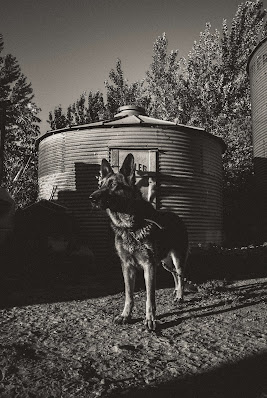After canine deaths, State Department stops sending dogs
After canine deaths, State Department stops sending dogs on overseas assignments
Military dogs like Conan, who took part in a recent U.S. special operations raid that led to the death of Islamic State founder Abu Bakr Baghdadi in Syria, get headlines and a White House visit.
But other U.S. working dogs are deployed overseas as well to sniff for drugs, ferret out explosives, guard civilians and do other important tasks. Many are under the control of local handlers.
A new report by the State Department’s inspector general says some of those dogs are dying from neglect, heat stroke, poisoning, and disease. The report did not say how many dogs had died, but it appeared to be about a dozen.
State Department officials, who oversee the dog program through the Diplomatic Security and Counterterrorism bureaus, said Monday they were alarmed by the report and were taking measures to ensure better conditions and the safety of the animals.
After initial resistance and the additional deaths, the U.S. has suspended new deployments of non-military working dogs overseas and will send veterinarians to sites where the animals are posted, the officials said.
“We will take every measure possible to prevent this from happening in the future,” a senior State Department official told reporters. The official spoke on the condition of anonymity because, apparently, the death of dogs is a sensitive topic.
The dogs “play a critical role in saving lives and are the most effective way to detect explosives,” the official said.
About 135 working dogs are used in eight countries, but Jordan, Egypt, and Morocco were the biggest offenders when it came to canine mistreatment, the report said. Among some Muslims, dogs are not highly regarded and are rarely kept as pets.
Jordan, an important U.S. ally, has the largest number of U.S. working dogs, about 20 last year.
The report cited “ongoing health and welfare concerns” for those dogs and faulted the State Department for continuing to supply canines to Jordan “without plans for funding or care.”
It costs $640,000 to send 10 canine teams, each team comprised of a dog and its handler, abroad for a 30-day training period, the report said. An additional million dollars or so is spent annually for vets and assistants.
State Department officials have been criticized for failing to protect the animals, waiting until after a whistleblower’s complaint and the inspector general’s report.
The report said poor kennel conditions and bad handling contributed to the decline in the dogs’ health. And some, the report said, “lost the will to work.”
Most of the dogs are German shepherds and Belgian Malinois, the officials said, dogs like Conan.
But the State Department is trying to introduce “floppy-eared” dogs such as Labradors, instead of their pointy-eared cousins, to give a softer and friendlier impression, an official said.




